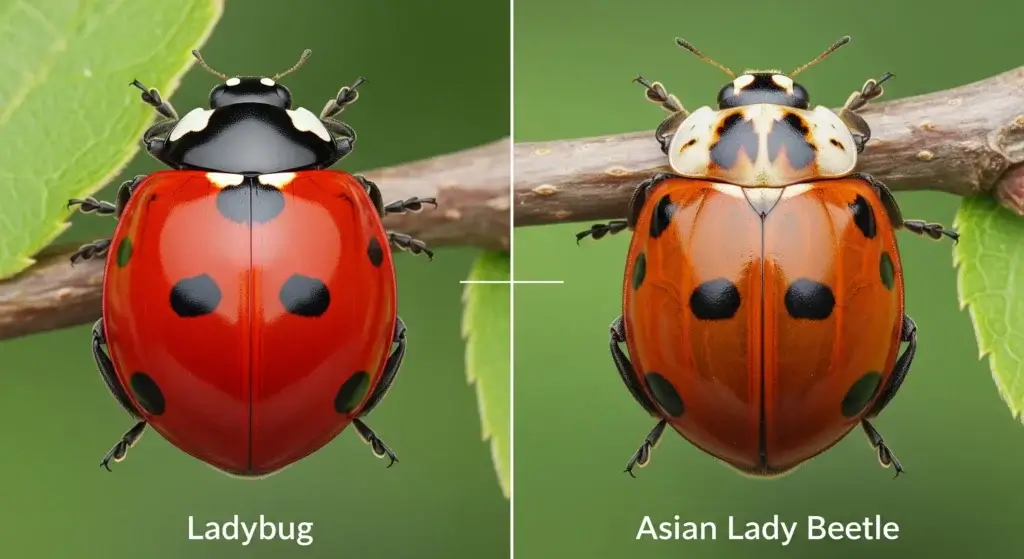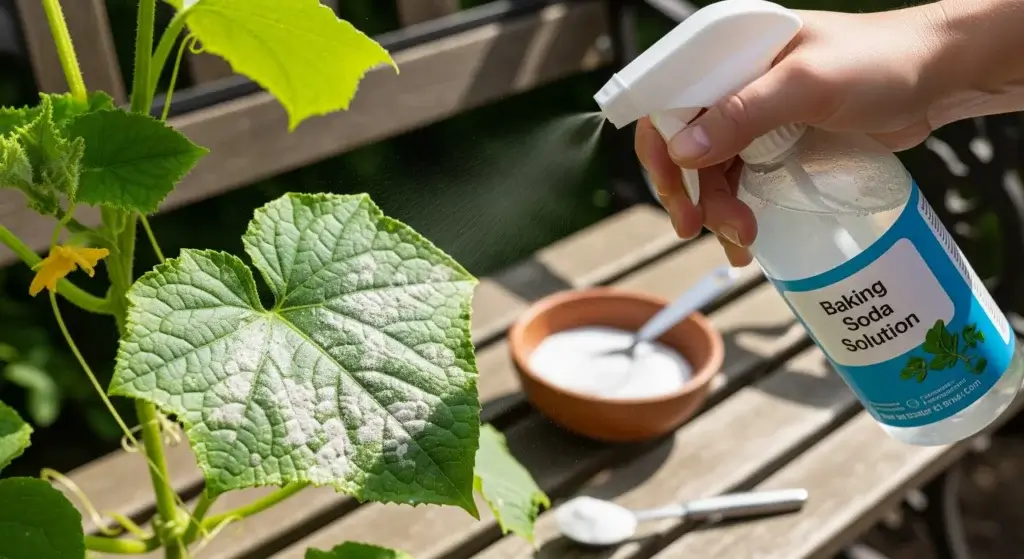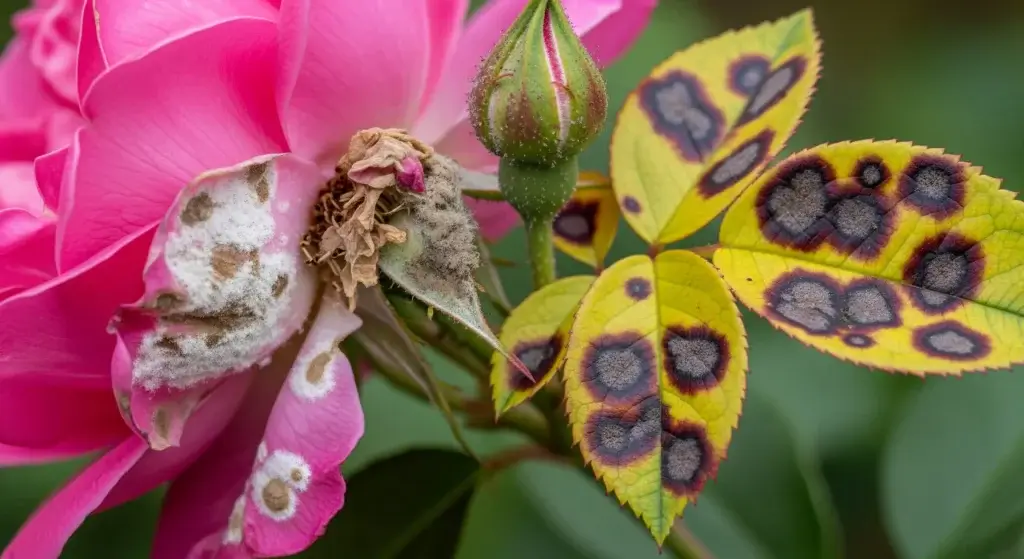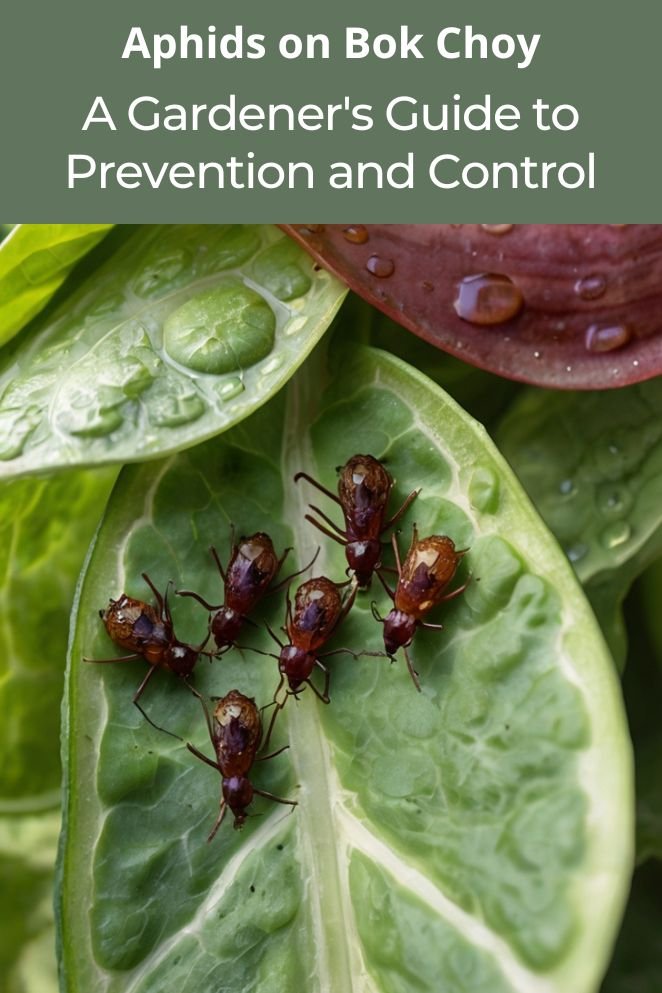
Aphids are one of the most common pests that can wreak havoc on your bok choy plants.
These tiny insects can multiply rapidly, causing significant damage to your crops.
If left untreated, they can severely impact the health and yield of your bok choy, leaving you with weak, stunted plants.
In this post, we’ll explore how aphids damage bok choy, the signs of infestation, and both natural and chemical control methods to keep your plants safe.
How Aphids Damage Bok Choy Plants
Aphids are tiny, soft-bodied insects that can cause significant harm to bok choy plants.
They feed by piercing the leaves and stems with their mouthparts and sucking out the sap, which is rich in essential nutrients.
This feeding process weakens the plant, making it more vulnerable to diseases and other pests.
In addition to draining nutrients, aphids produce a sticky substance known as honeydew.
This honeydew can encourage the growth of sooty mold on the leaves, which can interfere with the plant’s ability to photosynthesize effectively.
When photosynthesis is hindered, the plant struggles to grow and thrive.
If left unchecked, severe aphid infestations can lead to noticeable damage in bok choy plants.
The leaves may wilt, curl, or even die, ultimately affecting the overall health of the plant.
Keeping an eye out for aphids and addressing infestations early can help protect your bok choy and ensure it grows strong and healthy.
Signs and Symptoms of Aphid Infestation on Bok Choy
Identifying an aphid infestation early can help save your bok choy plants.
Here are some signs and symptoms to look for:
- Sticky leaves: Aphids secrete honeydew, which makes leaves sticky to the touch.
- Sooty mold: The honeydew can attract mold, which appears as a black, powdery substance on the leaves.
- Curled or yellowing leaves: Aphid feeding damages the plant tissues, causing leaves to curl or turn yellow.
- Visible aphids: These insects are often found in clusters on the underside of leaves. Aphids can be green, black, yellow, or white, depending on the species.
- Stunted growth: If the bok choy isn’t growing as expected or looks weak, aphids could be draining essential nutrients from the plant.
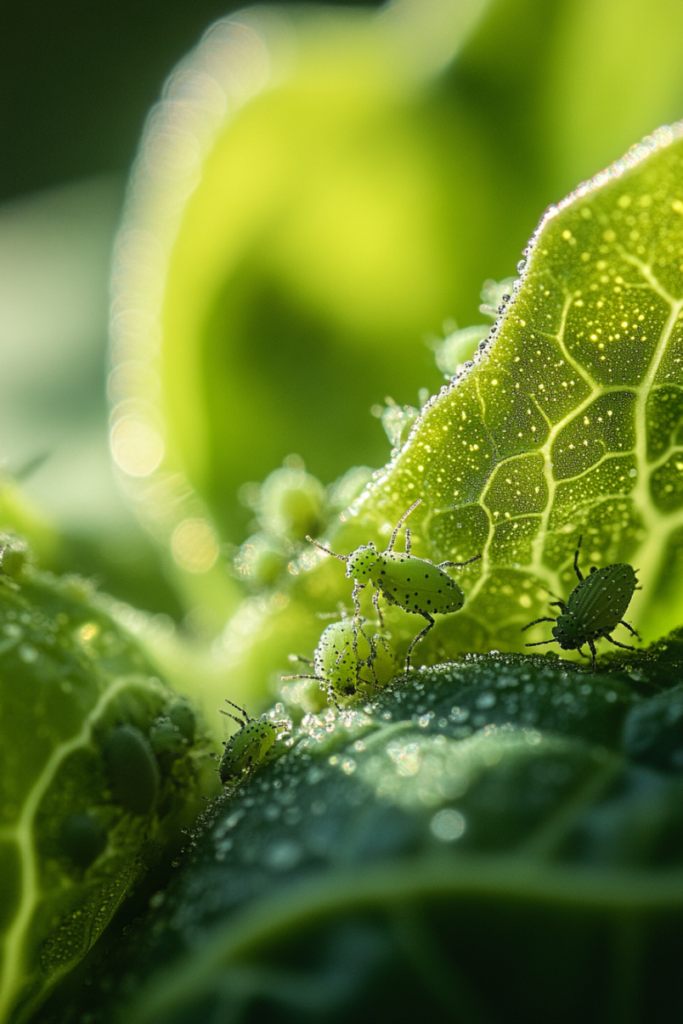
Prevention Strategies
Preventing an aphid infestation is always easier than dealing with one.
Implementing good gardening practices can keep aphids at bay and ensure healthy bok choy plants.
Proper care and maintenance
Healthy plants are less likely to attract pests.
Make sure your bok choy gets the right amount of water, sunlight, and nutrients.
Regularly check your plants for early signs of aphids and other pests, especially during the growing season.
Early detection can help you address any issues before they become bigger problems.
Companion planting
Companion planting is a natural way to keep aphids away.
Consider planting aphid-repelling plants like garlic, chives, or onions around your bok choy.
These plants can help deter aphids from settling in.
Additionally, flowers like marigolds and nasturtiums attract beneficial insects, such as ladybugs, which feed on aphids.
Having these allies in your garden can help keep aphid populations in check.
Row covers or netting
Using physical barriers like row covers or netting can effectively protect your bok choy from aphids and other flying pests.
These covers are especially helpful in the early stages of growth when young plants are more vulnerable.
Just be sure to secure the covers well to prevent aphids from sneaking underneath.
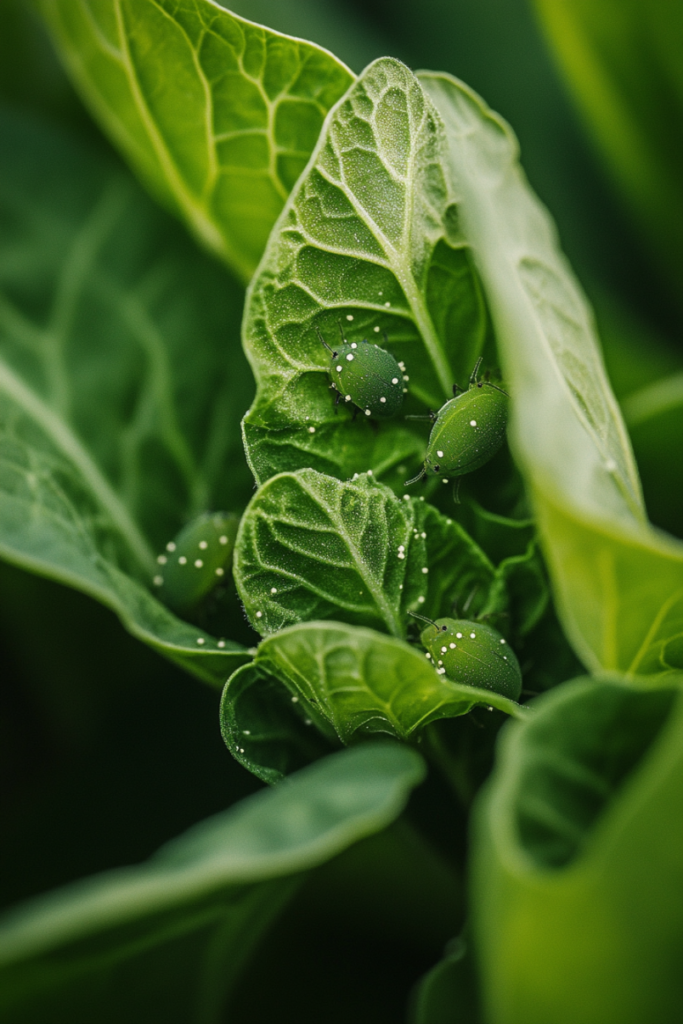
Natural Pest Control Methods
If you find aphids on your bok choy, don’t worry!
There are several natural pest control methods that are both effective and eco-friendly.
Here are some options to consider:
Neem oil
Neem oil is a powerful, organic insecticide made from the seeds of the neem tree.
It disrupts the life cycle of aphids by preventing them from feeding, laying eggs, or growing.
To use neem oil, mix it with water and spray it directly onto the affected leaves, paying special attention to the undersides where aphids often gather.
Research shows that neem oil works well against various pests, including aphids, and it’s safe to use on edible plants.
Insecticidal soap
Insecticidal soap is another natural way to eliminate aphids.
It penetrates the soft bodies of the aphids, causing them to dehydrate and die.
You can buy insecticidal soap at a garden store or make your own by mixing a mild soap (avoid those with additives and fragrances) with water.
Spray the solution directly onto the aphids, covering both the tops and undersides of the leaves for the best results.
Diatomaceous earth
Diatomaceous earth is a fine powder made from the fossilized remains of tiny aquatic organisms.
It’s non-toxic to humans and pets but harmful to aphids. When they come into contact with diatomaceous earth, it damages their exoskeletons, causing them to dehydrate and perish.
Sprinkle a thin layer of this powder around your bok choy plants, especially at their bases, to create a protective barrier.
Ladybugs and lacewings
Ladybugs and lacewings are natural predators of aphids.
Introducing these beneficial insects into your garden can help keep aphid populations in check.
You can find ladybugs or lacewing larvae at garden centers or online.
Once released, these insects will munch on aphids, helping to keep your bok choy healthy and pest-free.
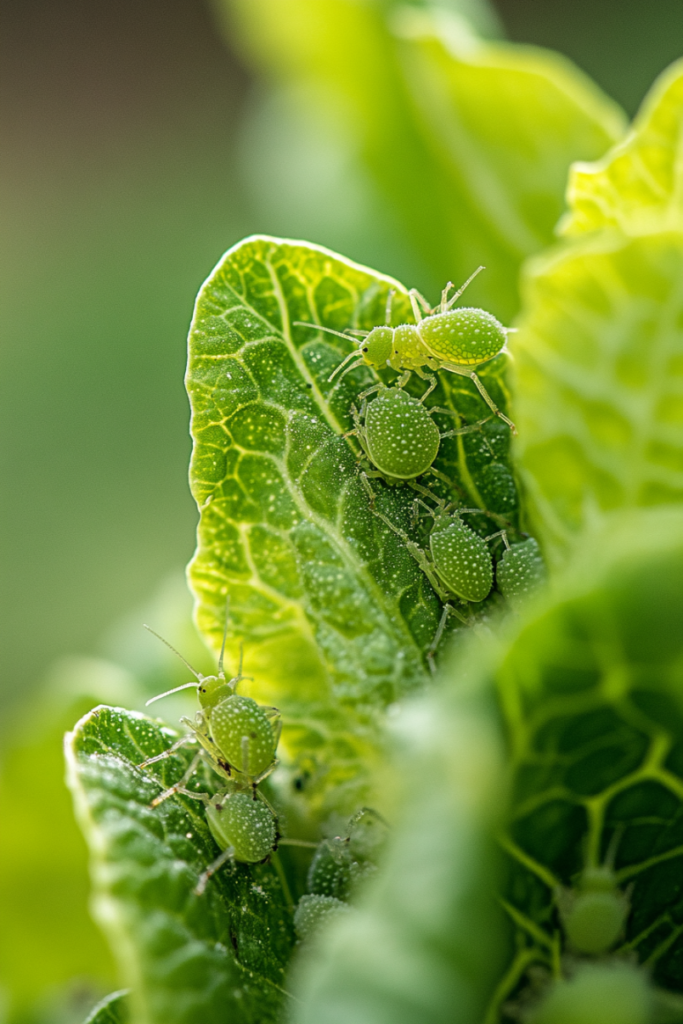
When to Consider Chemical Control
While natural methods for controlling aphids can be quite effective, there may be times when a severe infestation requires the use of chemical interventions.
Before opting for chemical insecticides, it’s crucial to carefully consider the advantages and disadvantages.
Assessing the severity of the infestation
If you’ve tried various natural methods and the aphid population continues to thrive, it may be time to think about chemical control.
Severe aphid infestations can cause significant damage to your bok choy, leading to reduced yields and making the plants more vulnerable to other pests and diseases.
Choosing appropriate chemical insecticides
There are several insecticides available that are effective against aphids.
When selecting a product, look for those specifically labeled for use on vegetables like bok choy.
Systemic insecticides are often a good choice because they are absorbed by the plant and work from the inside out, targeting the pests effectively.
Safety precautions and environmental impact
If you decide to use chemical insecticides, it’s vital to follow the label instructions closely.
Always wear protective gear, such as gloves and masks, to safeguard yourself during application. Avoid spraying on windy days to prevent drift and be sure to wash your hands thoroughly after handling chemicals.
Additionally, consider the environmental impact of your choices; chemical insecticides can harm beneficial insects and pollinators that play important roles in your garden’s ecosystem.
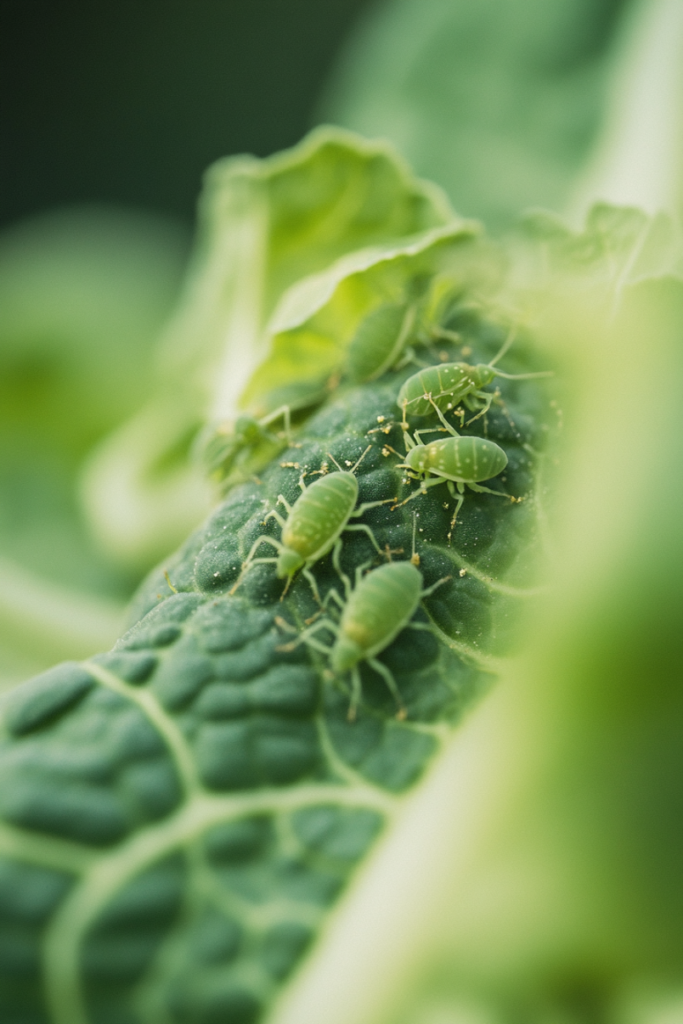
Final Thoughts
Aphids on bok choy can be a frustrating problem, but with proper care and the right prevention and control methods, you can protect your plants and ensure a healthy harvest.
By using natural pest control techniques like neem oil, insecticidal soap, and introducing beneficial insects, you can keep aphid populations under control without harming the environment.
If necessary, chemical insecticides can be used as a last resort, but always with caution.

